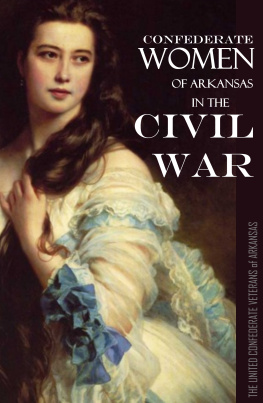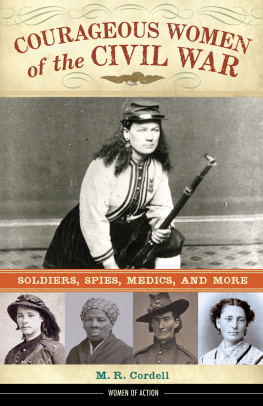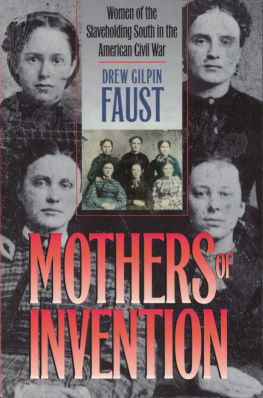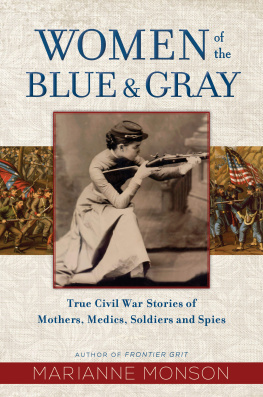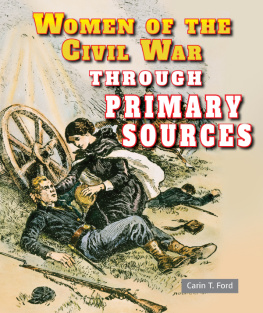When Confederate men marched off to battle, southern women struggled with the new responsibilities of directing farms and plantations, providing for families, and supervising increasingly restive slaves. Drew Gilpin Faust offers a compelling picture of the more than half-million women who belonged to the slaveholding families of the Confederacy during this period of acute crisis, when every part of their lives became vexed and uncertain.
In this UNC Press Short, excerpted from Mothers of Invention: Women of the Slaveholding South in the American Civil War, Drew Gilpin Faust explores the legendary hostility of Confederate women toward Yankee soldiers. In actions ranging from daily displays of belligerence to murder and espionage, these women struggled not only with the Yankee enemy in their midst but also with the genteel ideal of white womanhood that was at odds with their wartime acts of resistance.
Drew Gilpin Faust is president of Harvard University. Her books include Southern Stories: Slaveholders in Peace and War, The Creation of Confederate Nationalism: Ideology and Identity in the Civil War South, and This Republic of Suffering: Death and the American Civil War.
UNC Press Civil War Shorts excerpt compelling, shorter narratives from selected best-selling books published by the University of North Carolina Press and present them as engaging, quick reads. Produced exclusively in ebook format, these shorts present essential concepts, defining moments, and concise introductions to topics. They are intended to stir the imagination and encourage further exploration of the topic. For in-depth analysis, contextualization, and perspective, we invite readers to turn to the original publications from which these works are drawn.
Confederate Women and Yankee Men consists of the introduction, chapter 9, the epilogue, and the afterword from Mothers of Invention: Women of the Slaveholding South in the American Civil War, by Drew Gilpin Faust. 1996 The University of North Carolina Press. All rights reserved.
www.uncpress.unc.edu
The Library of Congress has cataloged the original edition of this book as follows:
Faust, Drew Gilpin.
Mothers of invention : women of the slaveholding South in the American Civil War / by Drew Gilpin Faust.
p. cm.
Includes bibliographical references.
ISBN 0-8078-2255-8 (alk. paper)
1. United StatesHistoryCivil War, 1861-1865Women.
2. WomenConfederate States of AmericaHistory.
3. Confederate States of AmericaHistory. I. Title.
E628.F35 1996
973-715042dc20 95-8896
CIP 00 99 98 97 5 4
UNC Press Civil War Shorts ebook edition published in 2012
ISBN: 978-0-8078-3852-5
For more information on UNC Press ebook shorts, visit www.uncpressebookshorts.com.
Contents
INTRODUCTION
All the Relations of Life
Just a little more than a year after the firing on Fort Sumter and the outbreak of armed conflict between North and South, Lucy Buck of Front Royal, Virginia, observed in her diary, We shall never any of us be the same as we have been. The Civil War would replace the Old South with a new, slavery with freedom, and wealth with poverty. In transforming governments, economies, and society, the war necessarily challenged the very foundations of personal identity as well.
White men and women of the antebellum South had defined and understood themselves in relation to a number of categories: race, which marked the difference between bound and free, superior and inferior; gender, which was designed to distinguish independent from dependent, patriarch from subordinate; and class, more subtle and more hidden in a society that rested within a democratizing America but present nonetheless in distinctions of wealth, power, education, and refinement, in claims to honor and gentility. Of course, white southerners acknowledged other identities as well; they might be Presbyterians or Baptists or Methodists, Louisianians or Virginians or South Carolinians, Whigs or Democrats, but none of these characteristics was so readily apparent or so socially or personally fundamental as the Old Souths hierarchies of race, gender, and class. Southerners inevitably thought of themselves first in terms of blackness or whiteness and maleness or femaleness, for these attributes did not just shape identities but dictated life choices and aspirations. In the minds of white southerners, class was less rigid than these seemingly biological distinctions, yet this very fluidity made attention to social status and its shifts all the more imperative, for class identity had to be constantly asserted and claimed. Evident in skin color, dress, hairstyle, language, and prescribed behavior, race, class, and gender were both the markers and the principal determinants of power, as well as the stuff of self-definition.
When the Civil War convulsed southern society, when it overthrew slavery and undermined the wealth and political power of the planter elite, it necessarily threatened and transformed each of these interrelated hierarchies, instigating what one contemporary newspaper described as a Stampede from the Patriarchal Relation that had so firmly placed white men at the apex of the social pyramid. But perhaps just as significant as measurable shifts in social power was the challenge to the very categories that had defined and embodied that dominance. What did whiteness mean when it was no longer the all but exclusive color of freedom? What was maleness when it was defeated and impoverished, when men had failed as providers and protectors? What did womanhood involve once the notion of dependence and helplessness became an insupportable luxury? We are passing through a great revolution, a correspondent wrote to the Montgomery Daily Advertiser in July of 1864. The surface of society, like a great ocean, is upheaved, and all the relations of life are disturbed and out of joint. But the relations of life were more than just out of joint; they seemed incomprehensible. The upheavals of war created conceptual and emotional as well as social dislocations, compelling southerners to rethink their most fundamental assumptions about their identities and the logic of their places in the world.
We have, as Americans, long been attentive to the discussion and debate that the Civil War generated about the meaning of freedom and its relationship to blackness or whiteness. This has, for example, been a central theme within the evolution of American constitutional law as well as the source of the uniquely significant place the war occupies in our national history and consciousness. In recent years historians have devoted increasing attention to the more individual dimension of this transformation, looking closely at the ways in which black southerners claimed and defined freedom, acting as agents of their own emancipation. But very little of the enormous scholarly and popular literature on the war has been devoted to the ways in which it disrupted assumptions about gender or to how those disruptions produced their own long-lived legacy. This book seeks to make a contribution to redressing that imbalance by exploring the meaning of the Civil War for one especially articulate and introspective group of women: those of the privileged and educated slaveowning class of the Confederate South, a group that has left to us in diaries, letters, and memoirs an extraordinary window into their experience and consciousness.
Wars have frequently been seen as transformative of the status quo. But both the circumstances and the purposes of the Civil War made its impact unparalleled in the American experience. With armiesand death tollsof previously unimagined magnitude, the Civil War inaugurated a new era in the history of warfare. In the Revolution, no more than 30,000 Americans were ever simultaneously under arms. Civil War armies numbered close to a million, and deaths exceeded 600,000. Almost all of this conflict and destruction took place on southern soil. The totality of warfare for the South, the extraordinarily high level of mobilization of both men and resources, and the enormous significance of the southern homefront as well as its frequent transformation into battlefront made the Civil War experience so direct and thus so significant for Confederate women. With a few exceptions along the Confederacys borders, northern women were not subjected to the ravages of battle, nor were they called upon to make so essential a contribution to the war effort or to suffer the material deprivation imposed on southerners by the weakness of the Confederate economy.
Next page


